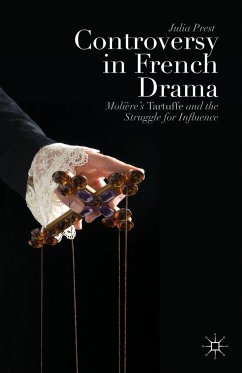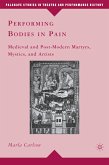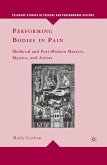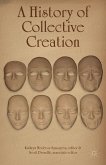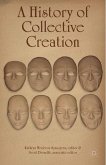"In this important new monograph, Julia Prest sets the five most intense years of the Tartuffe controversy - the period of its banning, from 1664 to 1669 - in the context of the varied interests competing for authority in society and, especially, for influence over the young king. ... Julia Prest's attractively written monograph is now essential reading for understanding the text of the play itself, and the whole controversy that surrounded it." (Richard Maber, Oxford University Press Journals - French Studies, Vol. 71, January, 2017)
"Julia Prest's Controversy in French Drama: Molière's Tartuffe and the Struggle for Influence elucidates standard narratives of the 1664-69 Tartuffe controversy and adds new dimensions by examining a wide swath of primary and secondary sources. ... Grounded in religious history and synthesizing French-language and English-language scholarship on Tartuffe, this book is sureto have a long shelf life. Prest provides crucial literary and historical context, clearly articulating the stakes of the Tartuffe debates." (Daniel Smith, Comparative Drama, Vol. 50 (1), September, 2016)
"The Shape of [Prest's] argument is essentially chiastic, with the 'struggle for influence' of the first and last chapters encasing three central pieces which focus, relatedly, on the nature and meaning of true and false devotion in the period . . . The valuable insight which Prest affords is to bring out how, as a result, the presence of moral goodness is seen to lie most clearly outside, rather than within, the parameters of Christianity. The book adopts a clearly articulated line of argument and, in doing so, brings history, spirituality, and theatre into an enlightening synthesis." - Times Literary Supplement
"Julia Prest's Controversy in French Drama: Molière's Tartuffe and the Struggle for Influence elucidates standard narratives of the 1664-69 Tartuffe controversy and adds new dimensions by examining a wide swath of primary and secondary sources. ... Grounded in religious history and synthesizing French-language and English-language scholarship on Tartuffe, this book is sureto have a long shelf life. Prest provides crucial literary and historical context, clearly articulating the stakes of the Tartuffe debates." (Daniel Smith, Comparative Drama, Vol. 50 (1), September, 2016)
"The Shape of [Prest's] argument is essentially chiastic, with the 'struggle for influence' of the first and last chapters encasing three central pieces which focus, relatedly, on the nature and meaning of true and false devotion in the period . . . The valuable insight which Prest affords is to bring out how, as a result, the presence of moral goodness is seen to lie most clearly outside, rather than within, the parameters of Christianity. The book adopts a clearly articulated line of argument and, in doing so, brings history, spirituality, and theatre into an enlightening synthesis." - Times Literary Supplement

